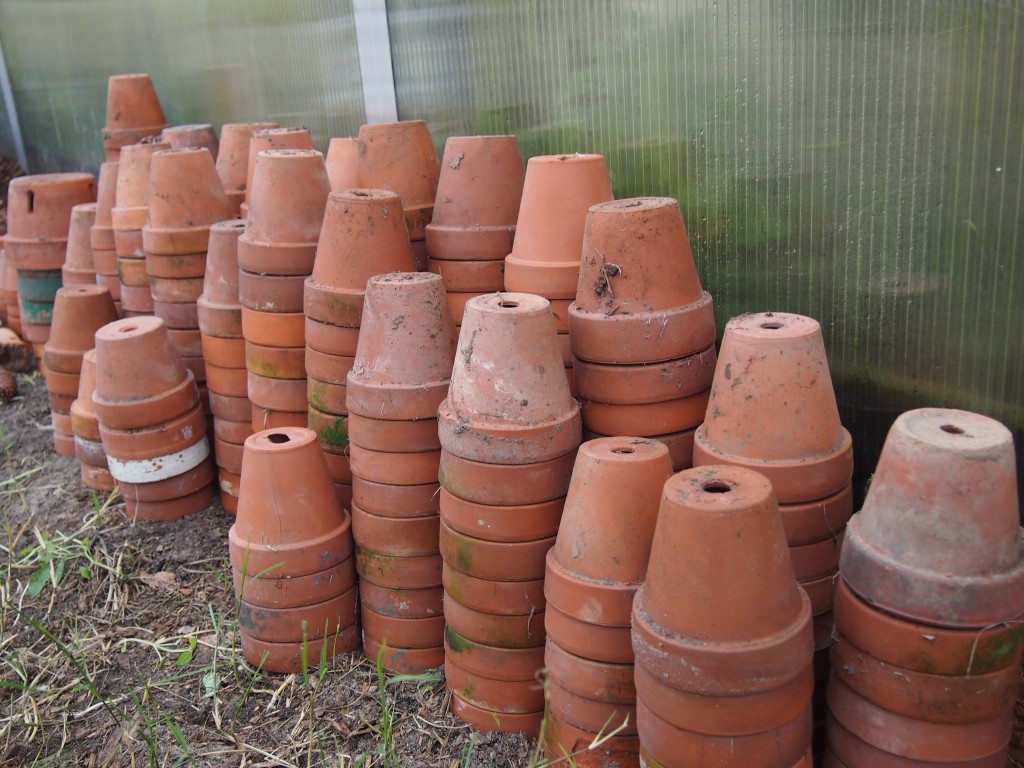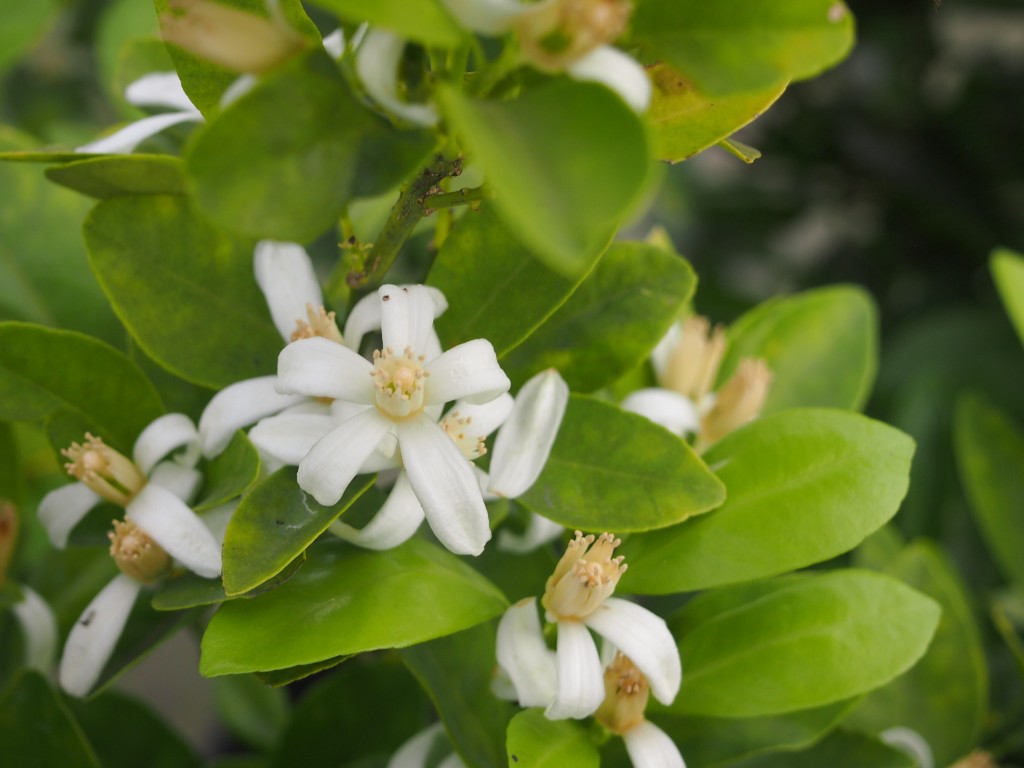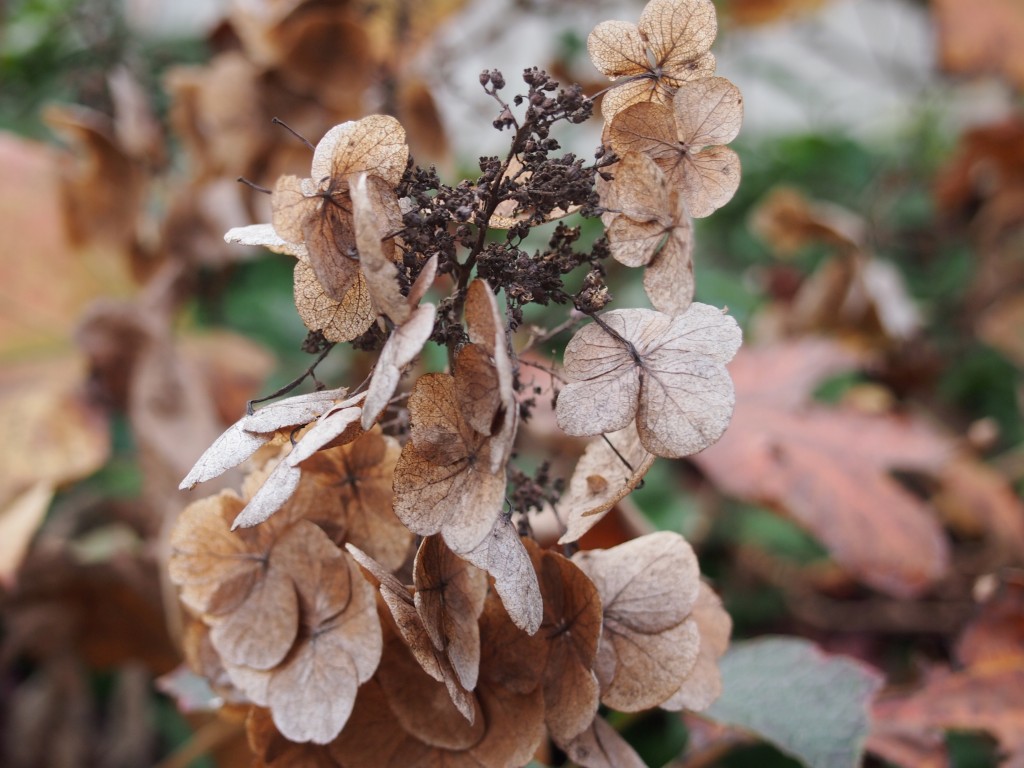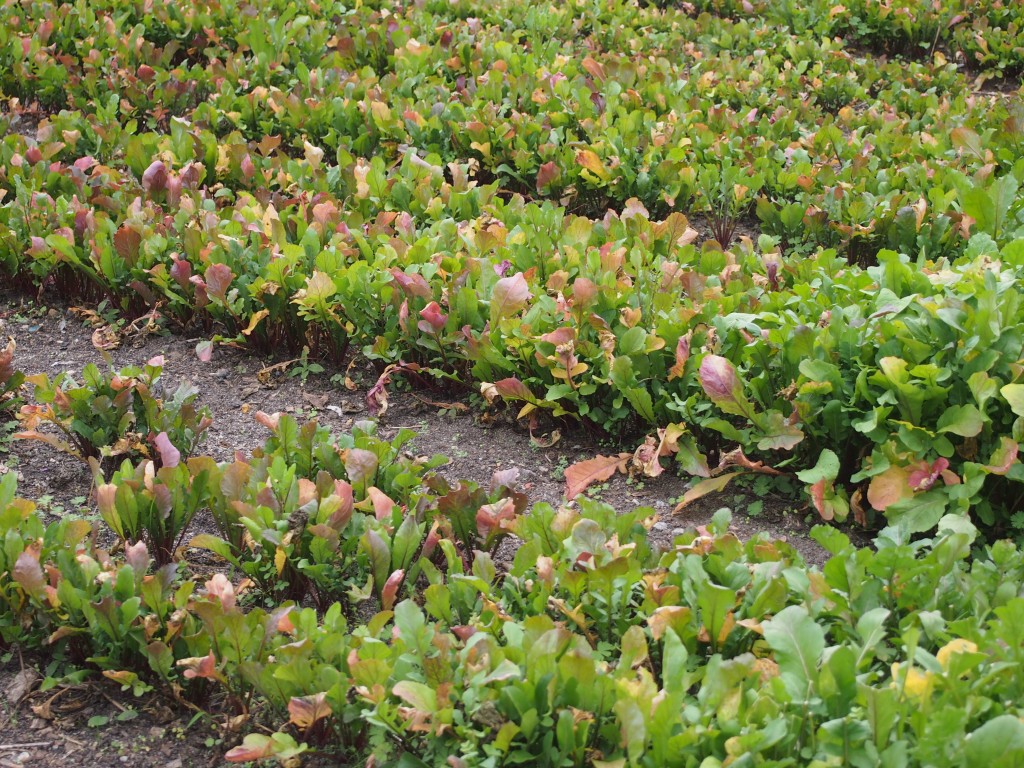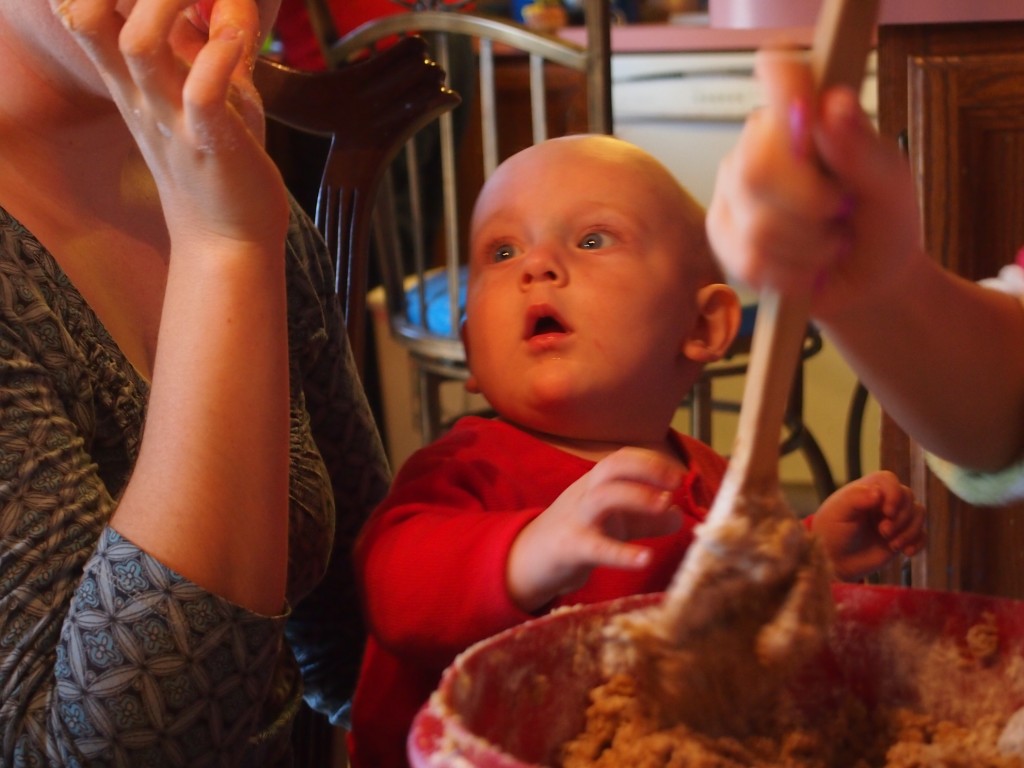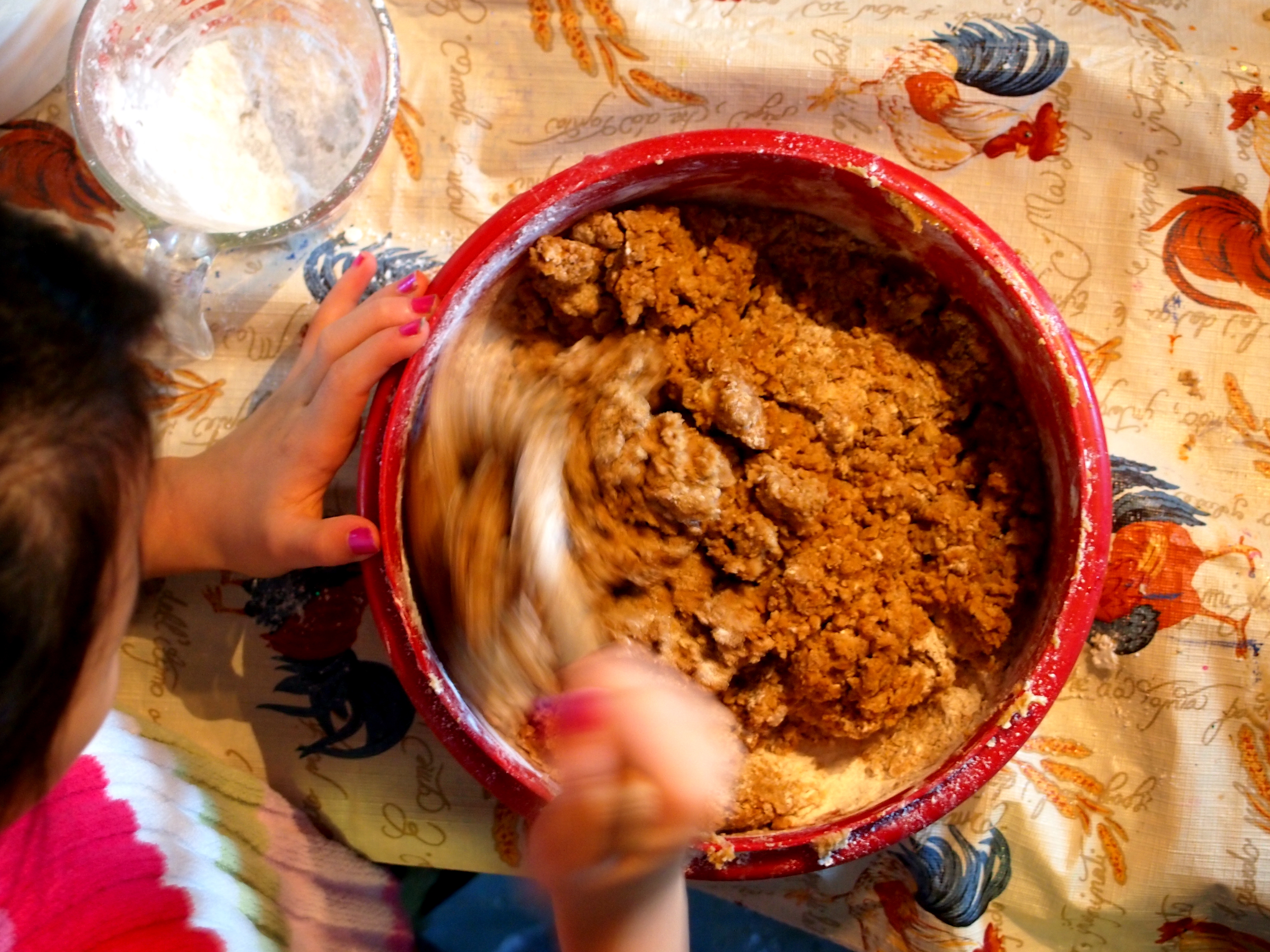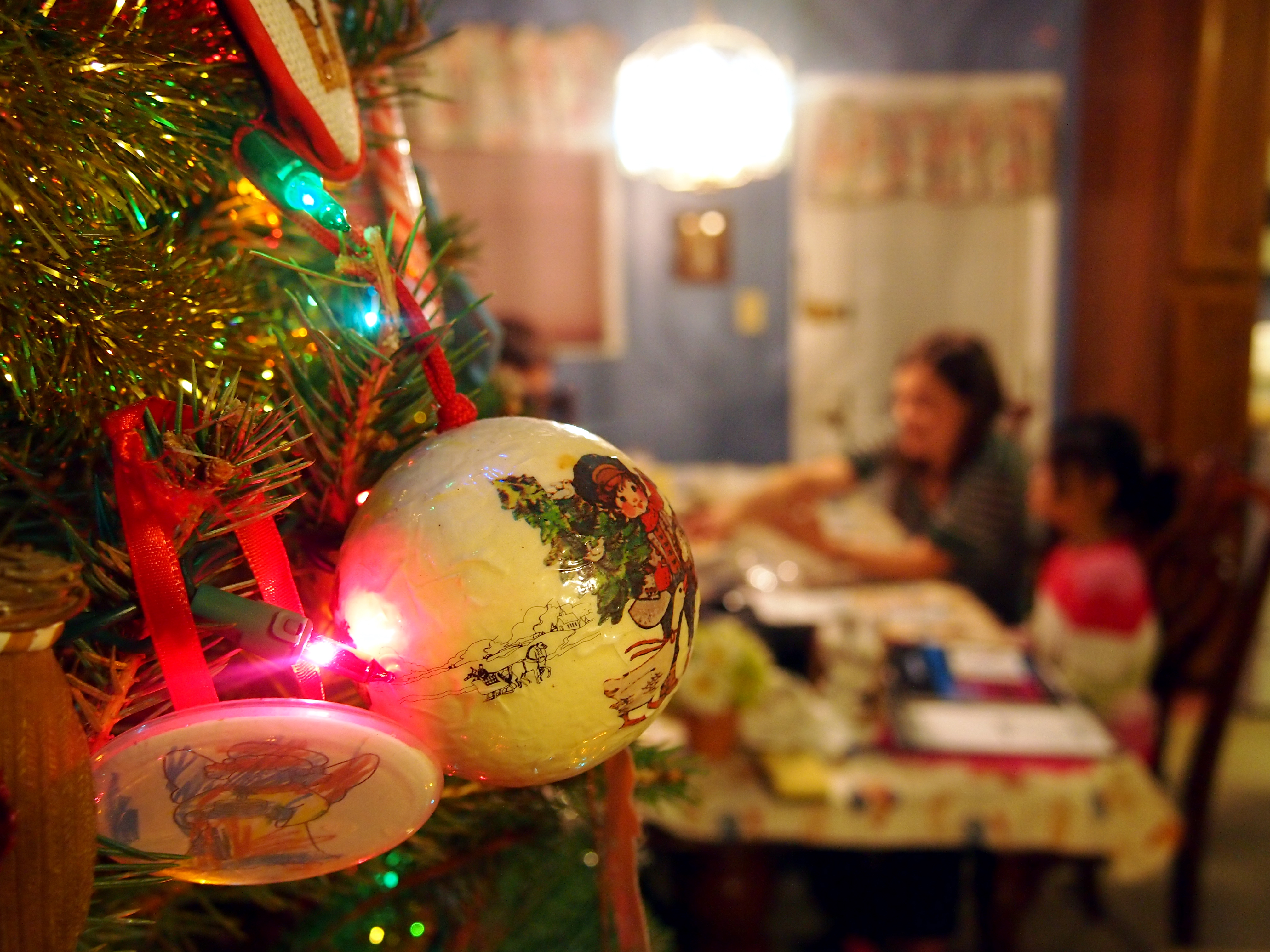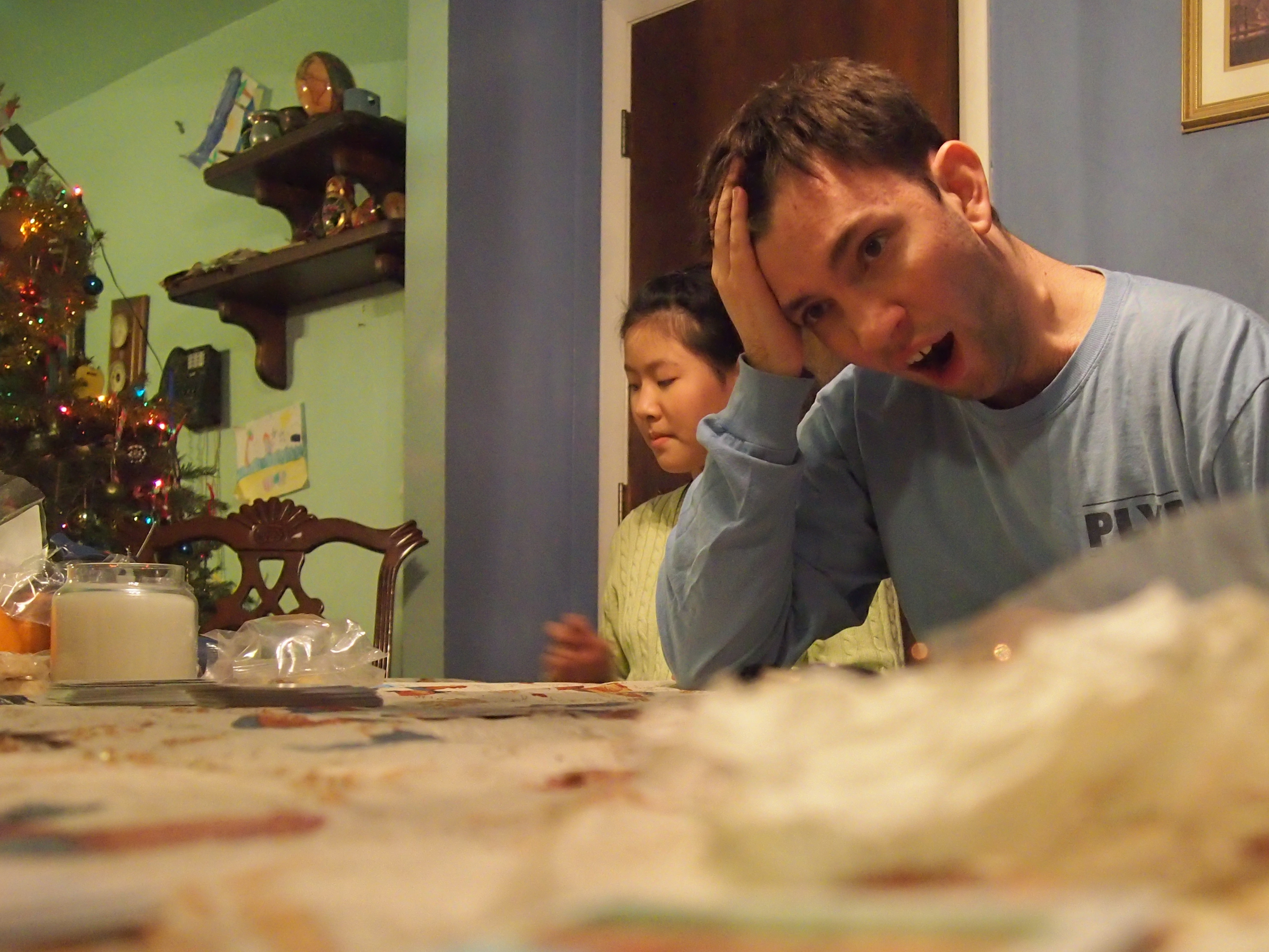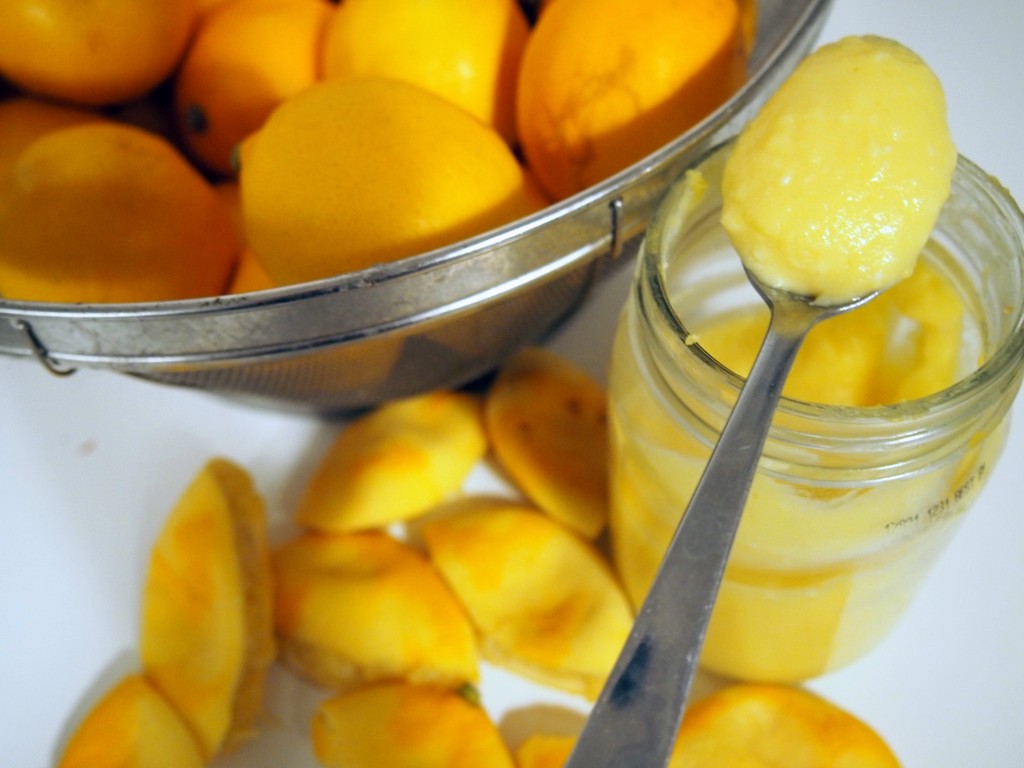
There are some kitchen activities that lend themselves to metaphor. Even if you are not a cook, you will likely know what I mean if I tell you about someone getting roasted at work. Or how I steep in the silence of the early morning before anyone else is up. Or how I have an idea percolating on the back burner.
But then there are other activities that only come to mean more through seemingly endless repetition. Whether specific recipes, chores, or rituals, these processes tend to become very personal symbols that are hard to communicate to anyone else. It goes beyond dog eared cookbooks and even beyond consciously recalling a recipe from memory. The process becomes some kind of psychic extension of yourself. You do them not just to have food in the fridge but because the making feeds your soul.
Making lemon curd is like that for me.
Every winter I not so patiently wait for the email notice from Local Harvest that meyer lemons and blood oranges are in season. I quickly order several boxes, always afraid that my favorites from Beck Grove will be sold out before I get any. It’s how I imagine the people camping in line for the newest tidbit of technology feel. About a week later, I hear the boxes thud by the door. For the next several weeks my time is spent processing 20 pounds of meyer lemons and another 25 pounds of blood oranges. Dried orange and lemon rings, citrus vinegar, “bloody” marmalade, limoncello… each year I seem to run out of fruit before I’ve finished preserving.
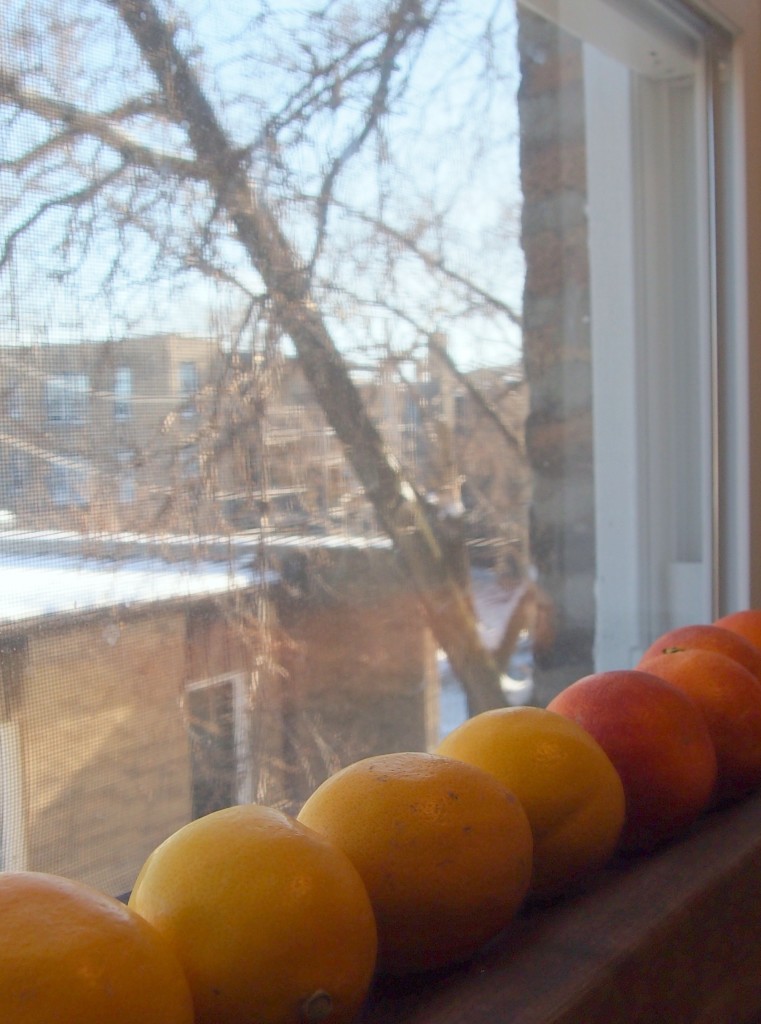
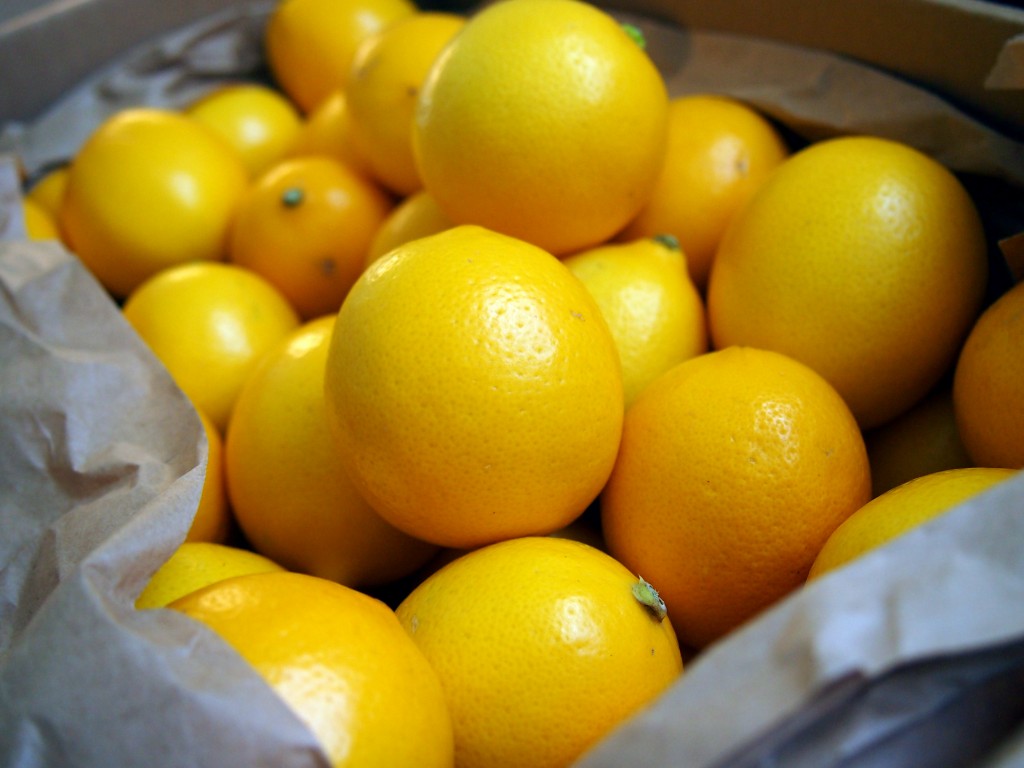
I love everything about preserving these fruits. From lining them up on my window sill against the steely winter sky to the blood red stains on my counter.This year I had the privilege of sharing that joy with one of my favorite people. Theodore helped me haul the heavy boxes up the steps and into the kitchen. He helped open the boxes and wasn’t the only one that squealed when the glowing yellows were revealed. It was with a small sense of loss that I let him carry one around the house, knowing that it wouldn’t be salvageable for any recipe after he was done with it. But the loss was recuperated as I got to watch his curiosity lead him to knead, squish, poke, roll, and taste that lemon. Now whenever he sees the lemons sitting on the counter, he insists whoever is at home come smell them, even the cats. I hope to be the kind of parent that will protect and foster that pleasure into his adulthood. Someone who sees such a gift in just the scent of a lemon would truly be a gift to the world.
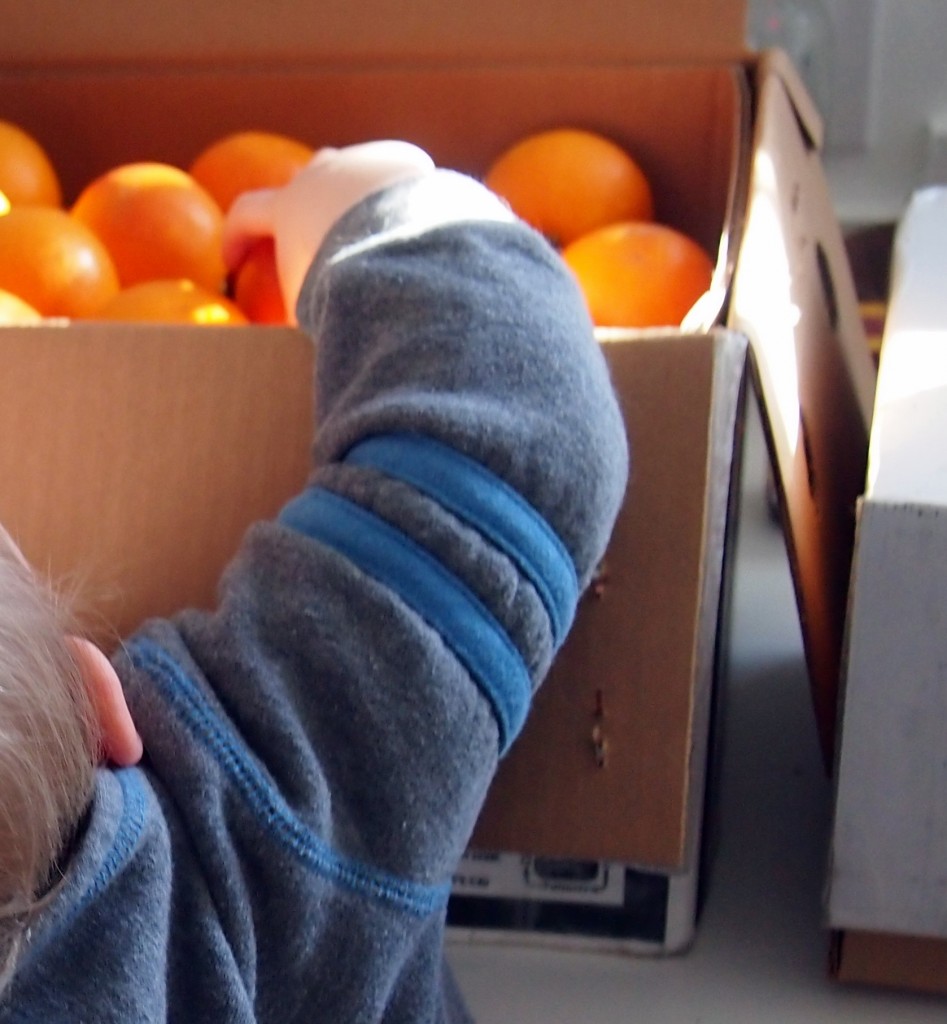
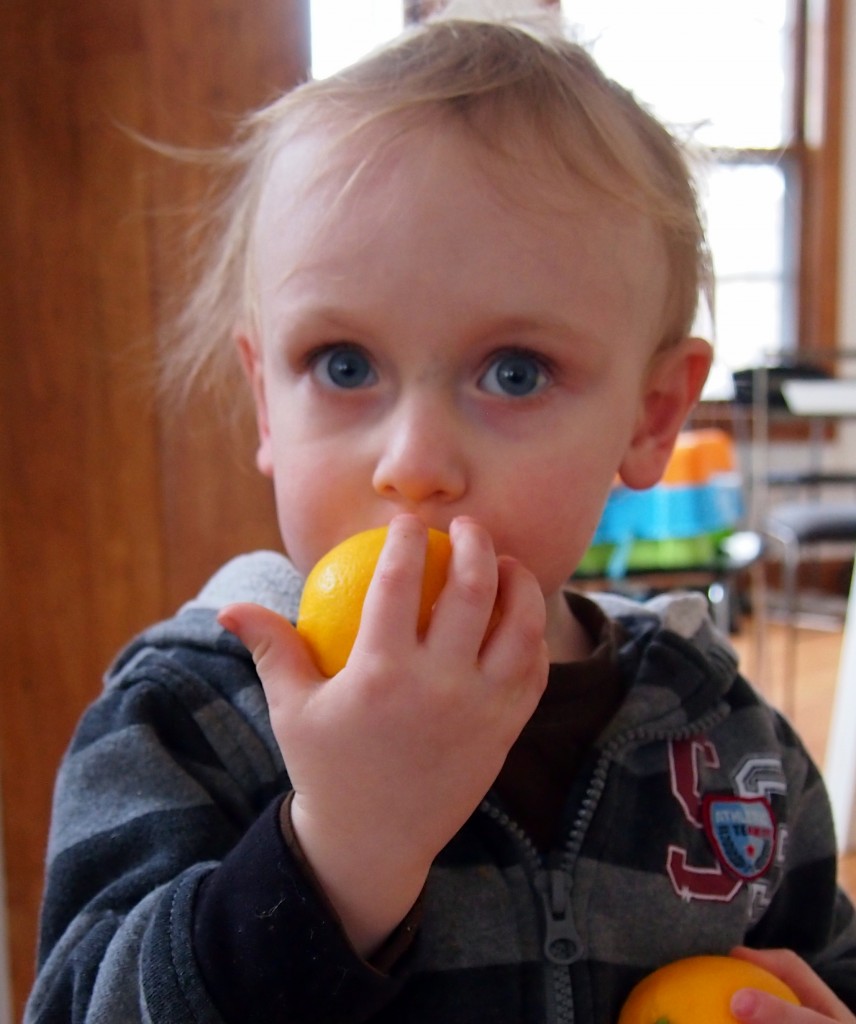
But the part that speaks to my soul is making lemon curd. Somehow, I become the eggs that break. The lemons that are squeezed so hard they bleed. The butter that finds itself melting away with no way to come back. And I feel the whisking. Endless whisking. As I stand over the pot, I feel the flame a little to close to my hand, but I keep whisking. I feel the disturbance in my soul. Beaten to a froth and then beaten some more. Constant constant motion. Never reaching equilibrium. Ceaseless whirling. I begin to wonder when it will end. How long? How long? I don’t know how much more I can take.
Suddenly.
There’s a thickness that wasn’t there before. The whisk moves more slowly, disturbing less with every stroke. Things become still in the center of the pot. I can see the tracks of where I’ve been. The heat is removed. I can almost hear the curd take in its first breath. And I breathe more deeply too.
Is it any wonder that the result of this process is a food that I can’t seem to get enough of? Though it may be possible to point to all the good fats in the butter, the selenium in the pastured eggs, or the vitamin C in the lemon juice, I think there is more going on here than mere nutrition. It is soul food of a different dimension.
Meyer Lemon Curd with Cardamom
makes 2 pints
6-8 Meyer lemons
6 eggs
1/3 cup honey
1 stick butter
2 tsp ground cardamom
Zest the lemons and reserve the zest. Juice them into a measuring cup until you have one full cup. If you are on the cusp of 1 cup, go ahead and juice another lemon. It’s better to have a little too much than too little. Whisk the eggs and honey in a medium pot. Pour the lemon juice through a fine sieve into the mixture and whisk until it’s the color of the first sunny day in spring. Slice the butter into pats and drop into the mixture. Turn the heat to medium high and whisk in the melting butter. Keep whisking almost constantly to avoid the eggs cooking up into chunks. When it suddenly thickens and coats the back of a spoon, turn off the heat and stir in a generous pinch of zest and the cardamom. Pour into jars. Eat one jar straight with a spoon. Tell your family the recipe only made one pint. The curd keeps in the fridge for at least a week and freezes well, though it looses a bit of it’s satiny texture upon thawing.
Posted 12 years, 4 months ago at 10:15 am. 1 comment
 aus pi cious [aw-spish-us]
aus pi cious [aw-spish-us]
adjective
1590′s “of good omen,” from L. auspicium, divination by observing the flight of birds, from auspex, “augur,” lit. “one who takes signs from the flight of birds
1. promising success; opportune; favorable: an auspicious occasion
2. favored by fortune; prosperous; fortunate
3. a pair of brand new snow boots bought on the very same day the decision to move to Chicago was made; preparedness for real winter; thrifted on the cheap from His House on River Dr.: These auspicious boots will keep my feet warm this winter in Chicago.
Posted 13 years, 2 months ago at 3:46 pm. 3 comments
 This is the time of year when I begin to think about summer again. I wouldn’t go so far as to say I miss it. But I do begin to pine… just a little bit. For awhile I try to ignore the notion that greens and root vegetables aren’t enough. After all, aren’t I spoiled by even having fresh greens in almost-February? I should chop up some kale and sweet potatoes and just be happy.
This is the time of year when I begin to think about summer again. I wouldn’t go so far as to say I miss it. But I do begin to pine… just a little bit. For awhile I try to ignore the notion that greens and root vegetables aren’t enough. After all, aren’t I spoiled by even having fresh greens in almost-February? I should chop up some kale and sweet potatoes and just be happy.
When the yearning for vibrant juiciness finally grows strong enough that I have to take it seriously, I break out the berries I’ve squirreled away in freezer. (And it really is squirreling. I often forget they are there until the next berry season comes around.)
Most of the berries I eat during the summer rarely make it to any kind of cooking device save a bowl and, maybe, a spoon. There just never seems to be quite enough of them to slake my lust and make a pie. Honestly, I don’t understand these people who come to the farm and buy just a quart of strawberries to last them the week. Part of the sweetness of eating seasonally is have the privilege (some would say excuse) of eating what’s in season until your heart is content.
Therefore, winter is the time I get to cook with berries. After being frozen, they are not satisfying out of hand eating. So into blueberry muffins they go. Or smoothies. Or upside down pancakes.
Instead of trying to recreate the fruit salads of summer, this recipe honors the winter kitchen by pairing the berries with a mulled wine. The result is a dish that redolent not of long summer days in the shade but of long winter nights in front of the fire. It gives me just enough juicy zest to take the edge off my summer pining.
Mulled Berries with Warm Brie
2 cups assorted frozen berries (I used strawberries, blueberries, and blackberries)
1 cinnamon stick
5 cloves
5 allspice berries
1 bay leaf
1/2 tsp freshly grated nutmeg
1/2 tsp freshly ground black pepper
2 in piece of citrus zest, such as lemon or orange, though lime is fine too if that’s what suits your fancy
1 cup red wine
1 wheel of brie, taken out of the box and wrapping removed
Place the berries in a bowl and allow to come to room temperature. Meanwhile, in a medium pot combine the spices, except the nutmeg, and wine and bring to a boil. Simmer gently until the liquid is reduced by half. Allow to cool for about five minutes, then strain through a fine mesh sieve. Return mulled wine to the pot and add berries. Reheat gently, stirring as little as possible to avoid squishing the berries. Keep warm. Heat a small skillet over medium heat. Place the brie on the skillet and warm for 5-7 minutes per side, or until its insides feel squishy.* Keep a close eye, turning down the flame if the outside begins to burn. If you prefer melted brie, continue heating for an additional minute or so. Remove the brie to a plate. Top with berries, grate nutmeg over the top, and cut into wobbly slices. Serve with bread, crackers, or just spoons.
*And what if the worst should happen and your brie breaks open, sending sizzling cheese all over the skillet? Never fear. Take the skillet off the heat and let the cheese harden for a few minutes. Then pour the berries right over the brie and serve in the skillet. It won’t be quite as posh looking, but it’ll still taste good.
Posted 13 years, 4 months ago at 9:51 pm. Add a comment
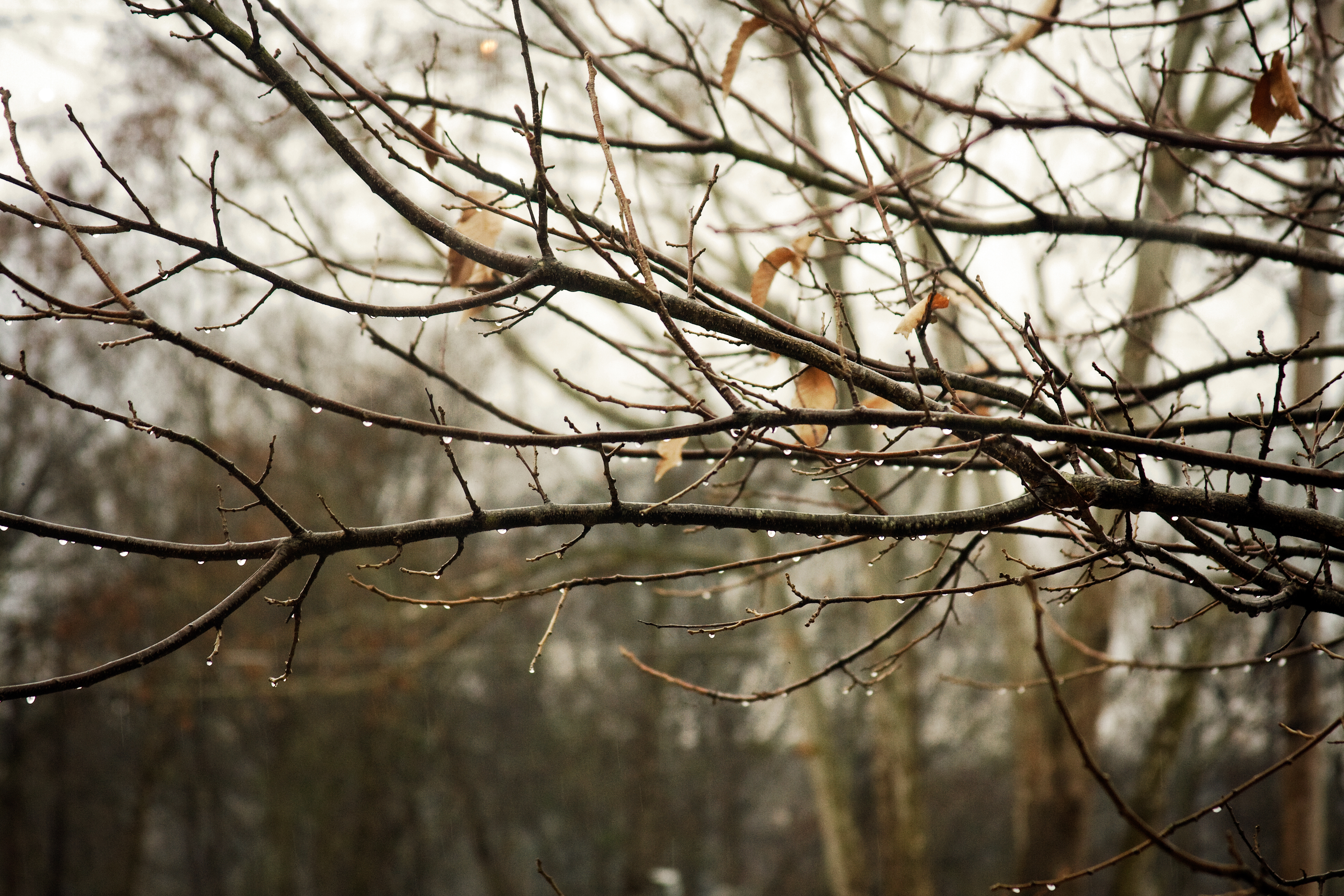
New Year’s resolutions are in season now. But I always feel a little disingenuous making them. After all who really cares about someone else’s resolutions once it’s not a third grade writing assignment? Also, it sometimes seems like the wrong time of year to be making new beginnings. Everything in nature has gone dormant and I often feel the summons to hunker down with them until spring.
And yet
Something in my psyche needs this shot of motivation after the let down of the holidays. Perhaps instead of dormancy, I ought look at the bare branches and listless patches of ground as a blank slate. Since I squander so many of them, I can use all the new beginnings I can get.
Perhaps it’s just the terminology I struggle with. Resolutions seem so rigid. They resound with do’s and don’t's. By mid-February most of us Resolutes are engaged in some form of double think. That didn’t count because I was tired. It was a special occasion. I won’t do it from now on. New Year’s resolutions are hard to keep precisely because a year is long time to hold to an intention that’s stiffer than a starched collar. I need something more along the lines of a pair of jeans. Something that I can take with me through my days, good, bad, and bland. A list not about guilt but about ambition.
Yes, an ambition. That’s a much better word.
Glad I got that sorted out.
Here’s a peek at my home and hearth list of ambitions for the year:
- Make fermentation a habit. So far I’ve only thought of fermenting foods as a way to preserve them. I’d this practice to become more integrated into my kitchen. Inherent to this practice is learning to make some kind of fermented beverage, be it kombucha, kefir, ginger beer, ect.
- Learn to sew or knit proficiently. Like, actually be able to make useful things, not just row after row of stitching.
- Relearn photography basics. Even though I took a photography class in high school, I can no longer remember exactly what’s meant by words like aperture and focal length. I’d like to reclaim this skill.
- Make soap.
- Learn to use more organ meat. Other than the occasional liver and onions for dinner (that I’m obligated to warn Mr. Quotidian about at least three days in advance, serve with dessert and sandwich that meal in between other more normal meals to make up for it) I don’t really know how to cook these parts of animals.
- Make regular trips to the thrift store. I’ve known for awhile that effective thrifting is habitual thrifting. While there are magnificent treasures out there, they most often go to those who are familiar with the bins, shelves, and racks.
- Learn more about traditional Southern food. Not the Crisco and food coloring South, but the way people cooked deep in the South’s history. Places to start my research are Anson Mills and Southern Foodways Alliance.
Posted 13 years, 5 months ago at 5:24 pm. 7 comments


It’s a beautiful day in this neighborhood,
A beautiful day for a neighbor,
Would you be mine?
Could you be mine?
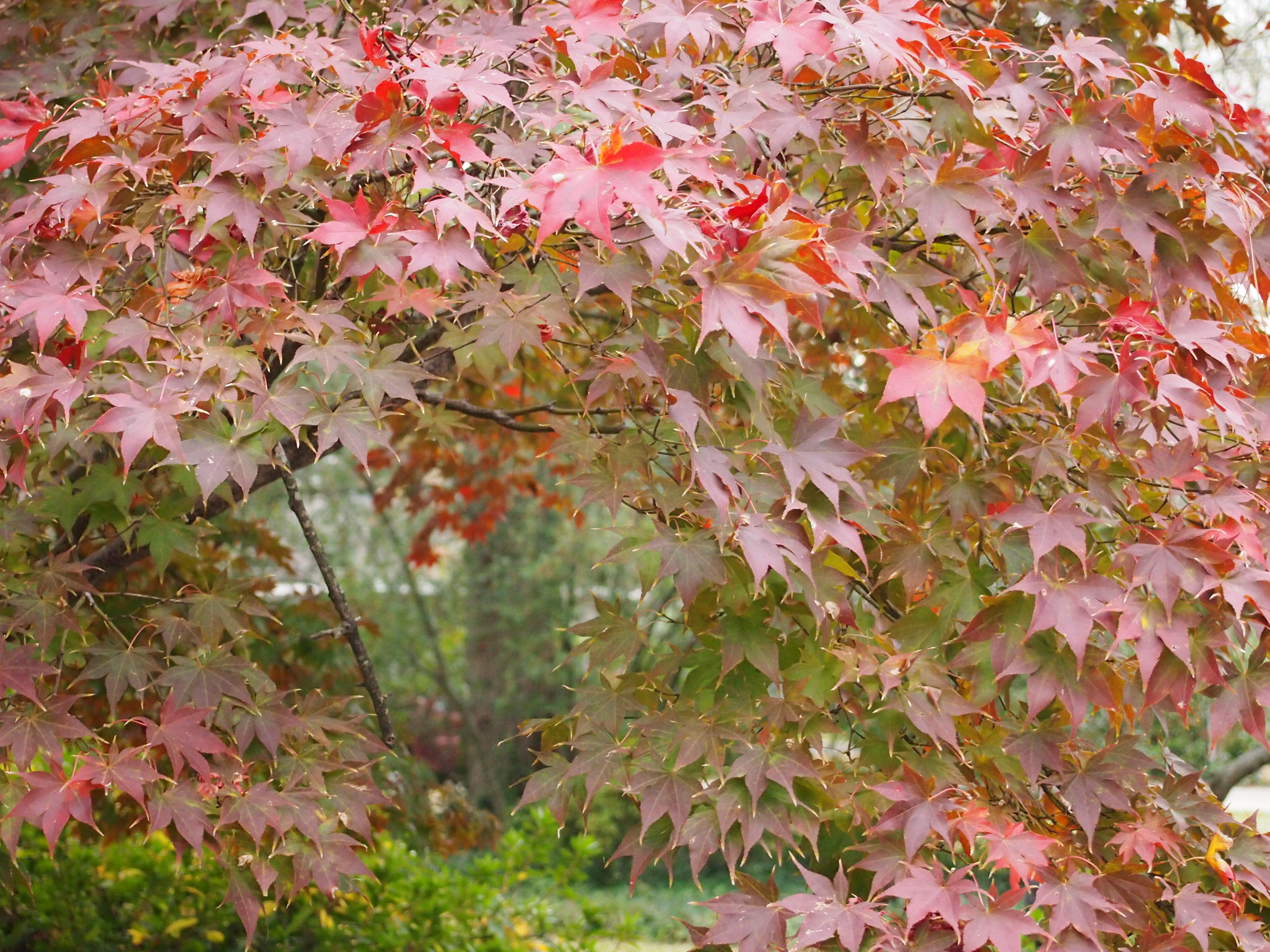
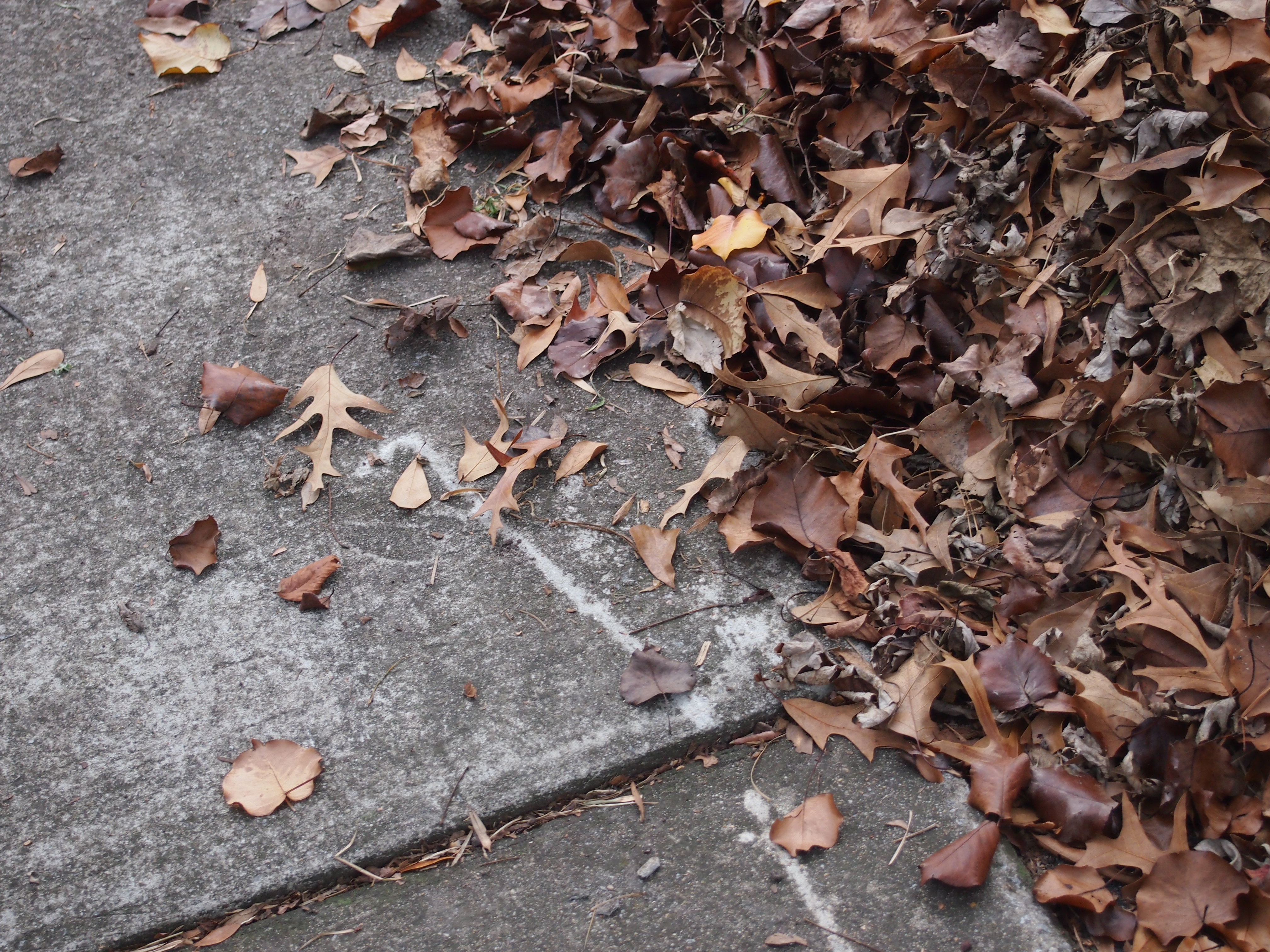
It’s a neighborly day in this beautywood,
A neighborly day for a beauty,
Would you be mine?
Could you be mine?
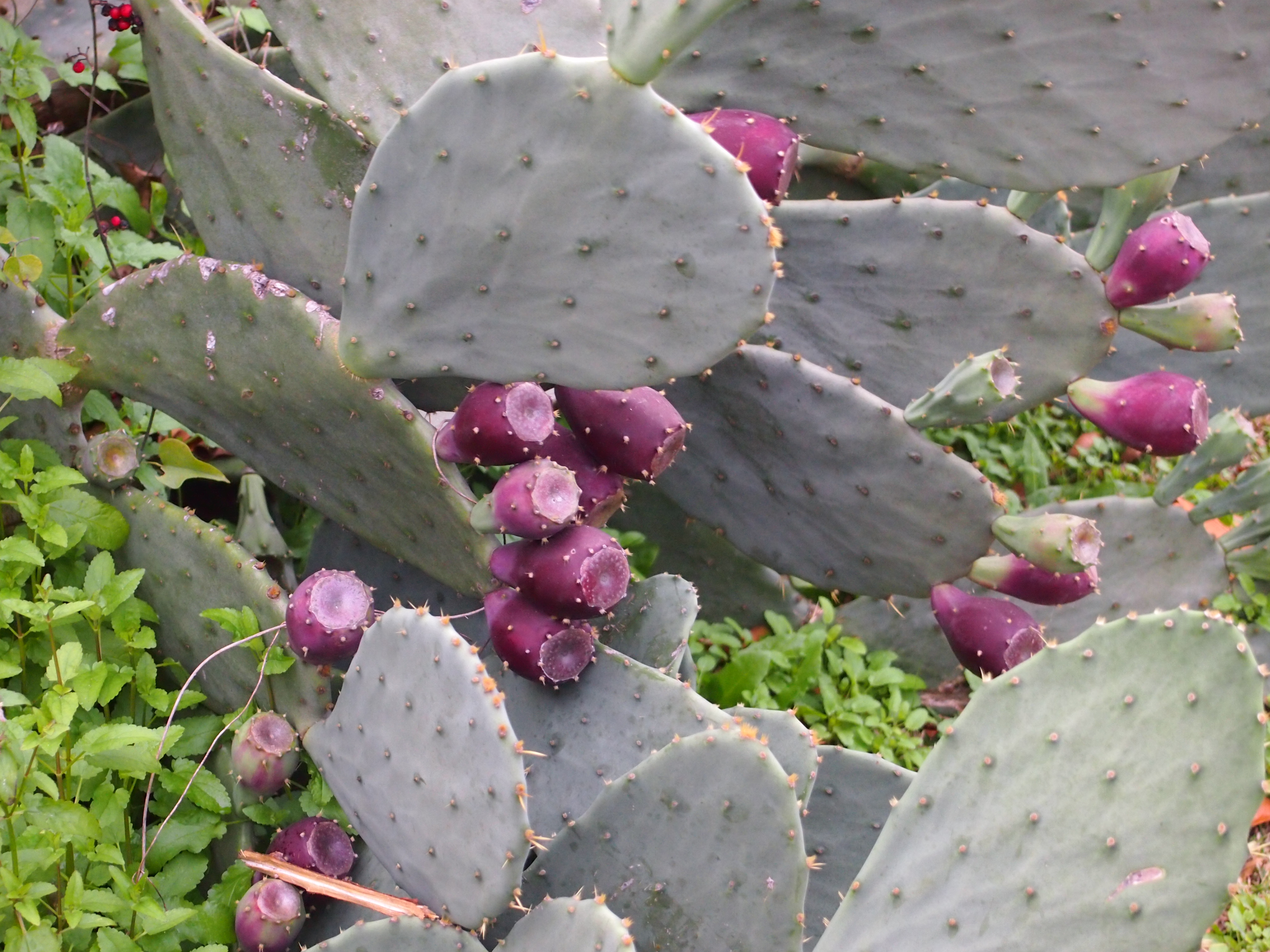
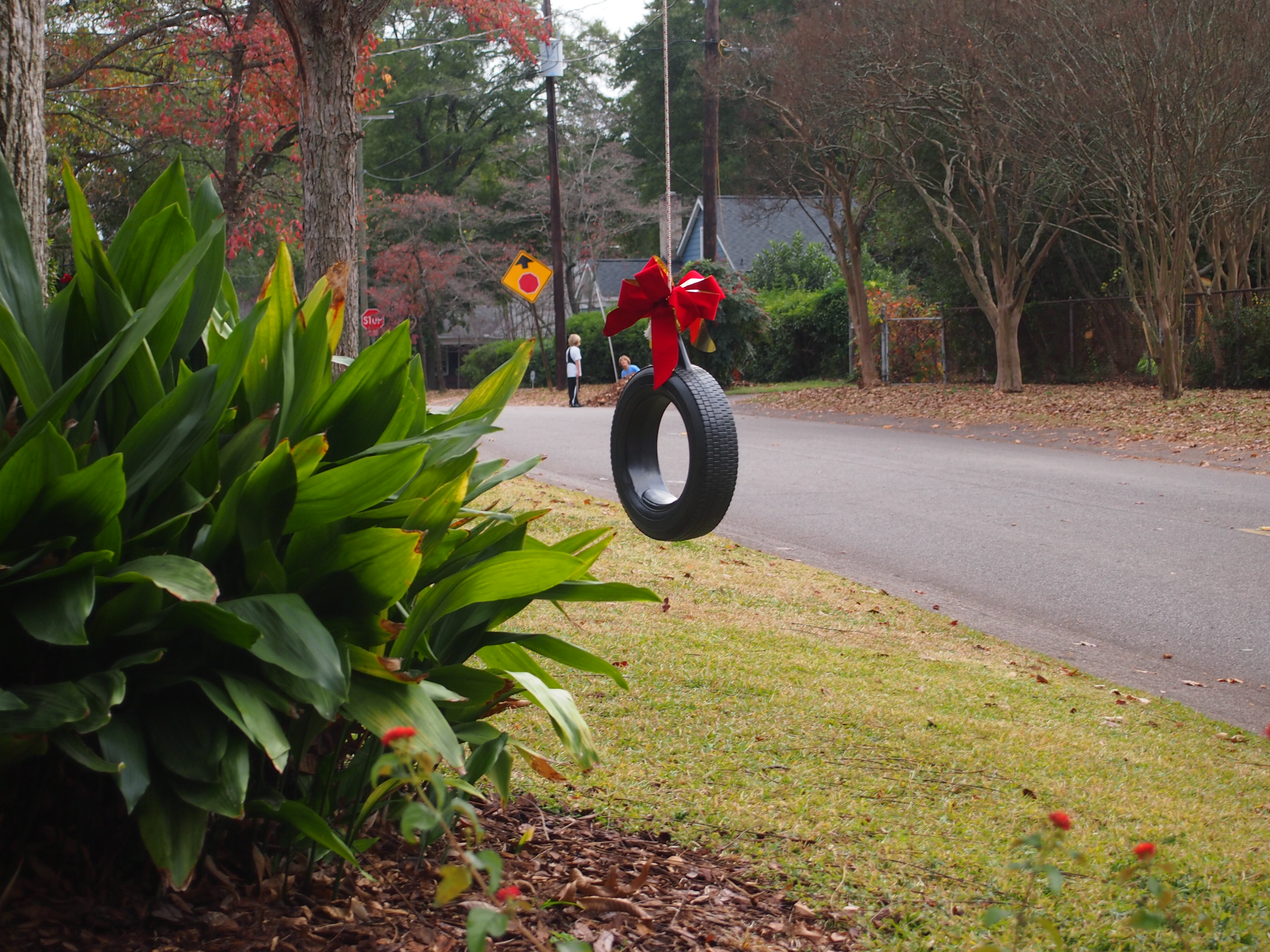
So let’s make the most of this beautiful day,
Since we’re together, we might as well say,
Would you be mine?
Could you be mine?
Won’t you be my neighbor?
…
Walks this time of year are a study in contrasts. The streets are littered with still bright leaves while the skies are often murky. While most trees have long since let go of their leaves, a few clutch at them like a child who refuses to take off her tiara at bedtime. They are beautiful in their stubbornness.
The allure of decoration is widely heeded though. Everyone from the neighbors down the street to the cacti are getting their jolly on.
Posted 13 years, 6 months ago at 7:47 pm. Add a comment









